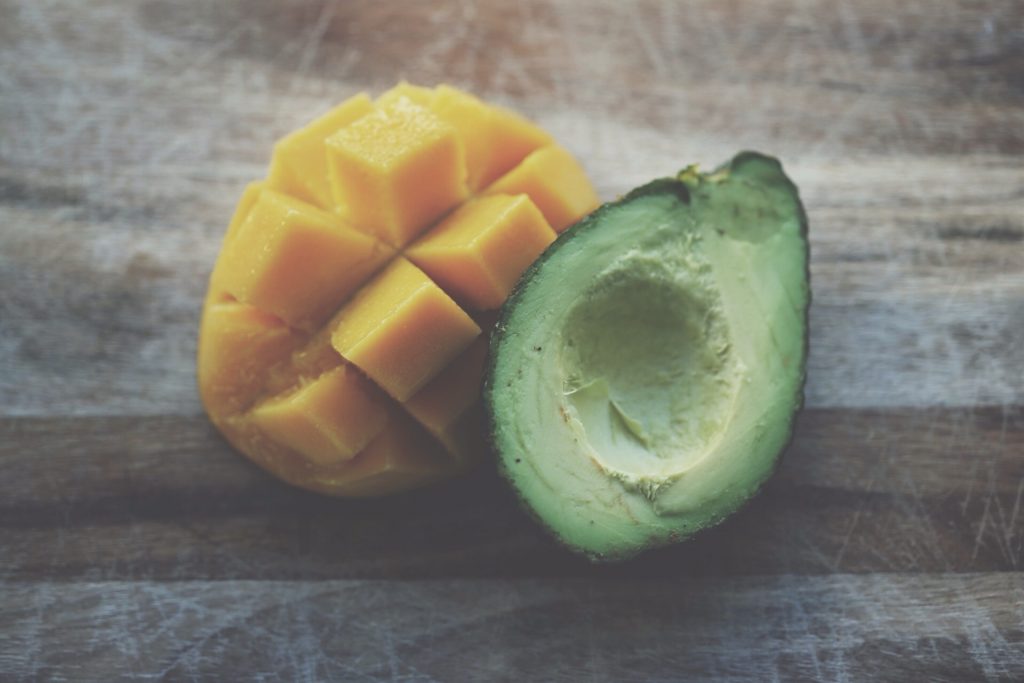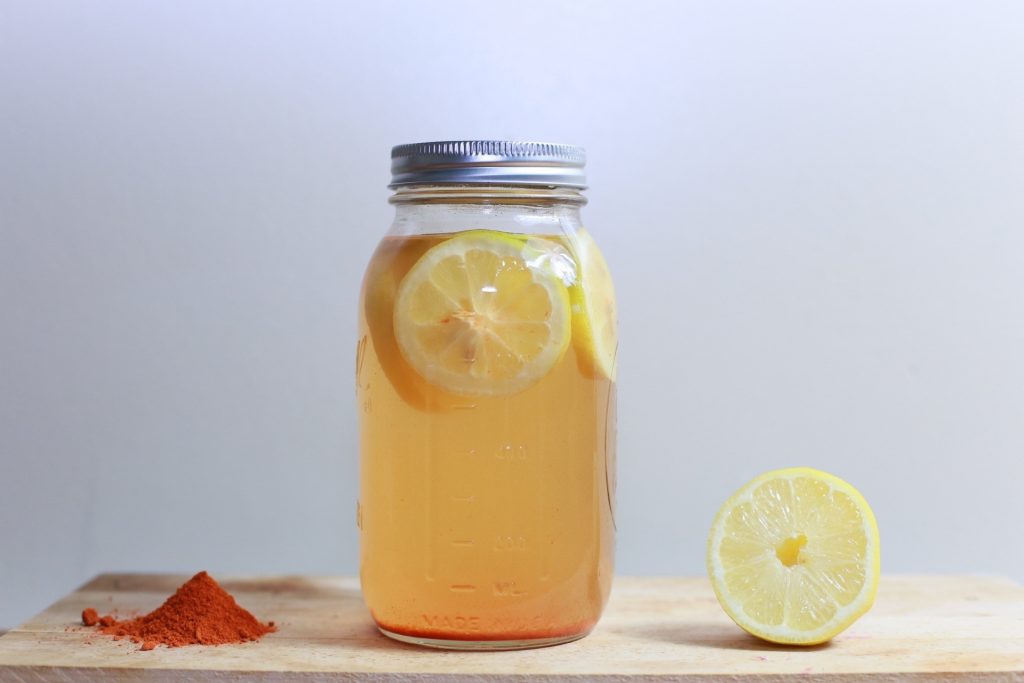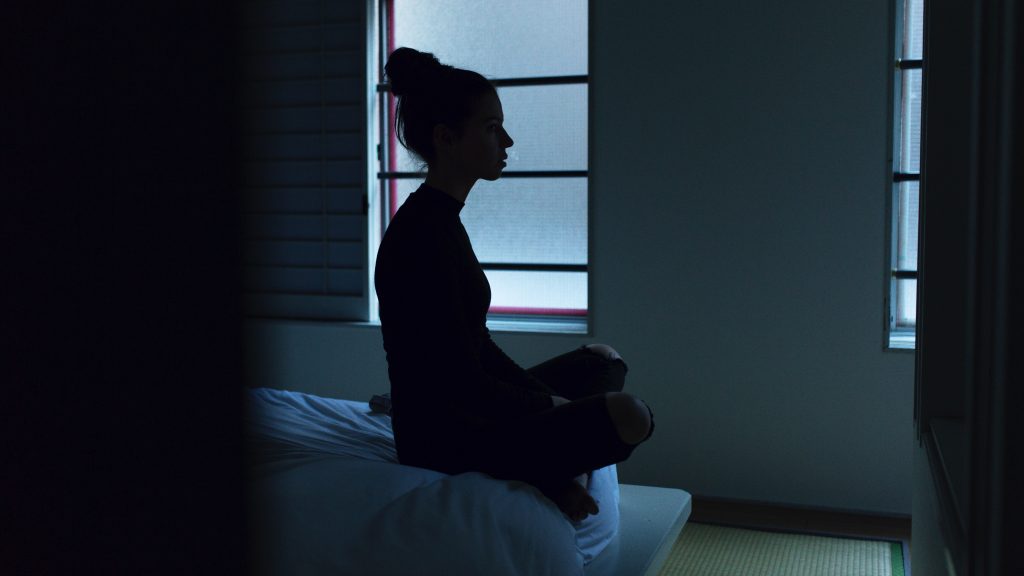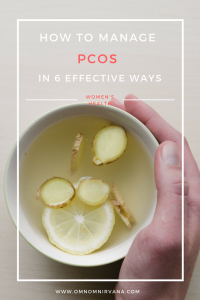Are you someone that has been diagnosed recently with PCOS (Polycystic ovary syndrome)? Here’s my guide on how to manage PCOS.
Hold up…Poly-what?
Let’s backtrack up a second. PCOS is a hormonal condition that occurs in 8% to 20% of women worldwide, according to Sirmans & Pate (2013). Most women are still undiagnosed. It’s usually detected when there are more than 10 follicles on an ovary. UAE. Dr. Zahida from Medeor 24×7 International Hospital Al Ain claims that she finds in her practice that 1 out of 4 patients is a PCOS sufferer! Its symptoms include a combination of:
- Irregular menstrual cycle ; either too long or too short
- Excessive hair on face
- Cysts on ovaries
- Thinning hair
- Unexplained weight gain
- Skin tags
- Skin darkening – at the back of the neck, under the breasts or underarms.
- Infertility
- High insulin levels
I was personally diagnosed with PCOS in 2016, and I think it explained a lot of changes that I’ve had in my body. The spotting during rough workouts, hair fall, weird chin hair. If you have any of these symptoms, you need to see a gynaecologist now and get a scan done. I think when I told my parents I had PCOS, they were particularly afraid of the infertility aspect. I’m sure a lot of women who have PCOS and want to have children are particularly worried about the same. Some women who don’t want to have children might look into birth control pills. However, those like me who have other hormonal issues like Hashimoto’s thyroiditis are already taking hormone regulating pills! By taking these pills for thyroid, the menstrual cycle and weight gain should be somewhat regulated. But what about the rest of the issues?
Guess what: Some changes in your diet and exercise can help you reverse it! I managed to reverse my PCOS in 2018.
You see, at the end of the day, PCOS is caused due to an imbalance in your sex hormones. I’ve consulted with Rashi Chowdhary, who’s a Dubai Health Authority licensed Nutritionist & Diabetic Educator on how to manage PCOS without any funky gimmicks. Do what works for you and always seek a medical professional’s help. Do not self diagnose.
How to manage PCOS through diet and exercise
1. Check your gut health

Remember the phrase by Hippocrates you’ve heard way too many times? ‘Let food be thy medicine and medicine be thy food.’ Are you having issues with your gut? Do you feel bloated or have other gut related problems? An example could be suffering from Hashimoto’s disease or any other auto immune conditions. Take care of your gut first and consume anti-inflammatory food like lemon, berries, cinnamon and ginger. Drinking bone broth will also help. Eat fermented food such as sauerkraut and kombucha among others. Eliminate dairy, gluten, soy, processed sugar and legumes. Get rid of anything that you know gives you a bloating feeling or indigestion.
2. Experiment with a saturated fat first diet

I know this may sound crazy, but it’s true! You could start your day with healthy fats to regulate your hormones. Your hormones are at the end of day, made of fat. So if you eat fats straight up in the morning, not only will eating fat first help you burn fat (this is provided your carb intake is low); but it will stabilise your insulin levels and hormone levels.
Sources of good fat include:
- Grass-fed ghee or butter
- Coconut ( the oil/meat/water)
- Nuts
- Eggs
- Avocados
- Meat
- Olive oil
Some breakfast ideas could include a combination of these. Eggs and avocado is a popular choice, and butter/ghee can be blended with coffee powder and hot water to make a butter coffee. Try to start cooking with ghee/butter/coconut oil. Have nuts or coconut water as a mid-afternoon snack.
Editor’s note (24th Jan 2019): I tried fat first, but it didn’t work for me. Instead, I opted for a more balanced diet with a moderate amount of fat, protein and carbs, and turned to whole foods. Turns out fat first doesn’t suit everyone and is a temporary solution to the PCOS issue. Please see my updated post on how I successfully reversed PCOS. I’ve also included a guide to meal planning here.
3. Weight train

Yep, you read that right. Weight training three times a week helps reduce insulin resistance and helps regulate the extra testosterone you are carrying. It helps reduce anxiety, stress and makes you strong and fierce AF. There’s a sense of empowerment that comes with weight training that I love. Trust me, you will get addicted in no time. Try to exercise for 60 minutes per day. This will not only help you get your weight down, but it will also do you a whole lot of good too. Invest in a personal trainer, or try out ClassPass, a pass which lets you experiment with different workouts.
4. Eat anti-inflammatory food

Besides the gut-healing food already mentioned above; here’s an easy anti-inflammatory shot recipe by Rashi: take some freshly squeezed lemon juice, thinly sliced ginger, a pinch of turmeric, a pinch of cinnamon with half a tablespoon of coconut oil and have it first thing in the morning. Have it as a shot. You can also make it a cocktail and add cayenne pepper if you want to burn fat too. Consume during the day. I personally have the shot first thing in the morning. Turmeric and cinnamon are two really important ingredients to incorporate in your journey on how to manage PCOS.
Turmeric
“Multiple/ poly or many cysts are a result of excessive inflammation in the body. This inflammation could be because of abnormal levels of hormones. Turmeric reacts directly with some proinflammatory factors like cytokines, transcription factors, adhesion molecules, etc which cause inflammation in the body.
“Constant mental stress or having a prolonged emotional problem that you have not been able to deal with causes prolonged oxidative stress on your body.” -Rashi Chowdhary
This oxidative stress releases reactive oxygen species that can cause PCOD. Over thinking, wanting everything to go EXACTLY your way and being a bit of a control freak are some of the common personality types who have PCOS. Constant oxidative stress can cause cardiovascular issues and it also has a negative impact on your skin health. Turmeric being a very powerful antioxidant helps to relieve your body of this oxidative stress.Your liver helps with the process of detoxification. A healthy liver can help eliminate excessive environmental toxins and androgens. Turmeric stimulates the production of bile in the liver which helps in the purification of your blood.” – Rashi
Cinnamon
“Insulin resistance either mild or full blown is very common amongst women with PCOD. There is an enzyme called Phosphatidylinositol 3-kinase which plays a key role in potentiating the action of insulin.
3 grams of cinnamon daily has shown to improve this enzyme’s activity in the Insulin signalling pathway, making your cells more receptive to insulin.
I would highly recommend you have a 200 ml water with 3 grams of cinnamon powder stirred up in it post lunch. Since lunch is generally carb heavy, it’s the best time to have cinnamon. It acts as an insulin mimicker helping with a more controlled sugar response post lunch.” -Rashi
5. Supplements

Whether you opt to go natural or not, there are some vitamins you may be lacking in your diet. Rashi recommends these 3 main supplements to manage PCOS, but if you are against supplements, I’ve included natural ones as well:
Omega 3
“2000-3000 mg is an absolute must if you have high levels of testosterone and insulin resistance. 6 months of consistent use has shown to have a positive impact on both of these blood markers. ” – Rashi
I’ve personally used Omega 3 as a supplement for over 6 months now and I’ve already noticed I’m way less tired. Even though I don’t have an acne problem, I’m definitely less tired. A common question that comes up, is asking whether we can consume omega 3 rich foods instead? Chia & salmon are awesome sources for this.
Selenium
I’ve seen this nutrient often in my Hashimoto’s awareness groups and it seems like it’s recurring. According to Rashi, it’s commonly used in treating diabetes and metabolic syndrome. Have 5-6 brazil nuts everyday for a natural way to supplement.
Zinc
“Zinc is an important mineral for appetite control. When you get inadequate amounts of Zinc from your diet, it causes a loss of taste and smell, so you will automatically crave for very strong tasting foods to make up for the deficiency. Zinc also reduces insulin resistance and helps in stabilizing blood sugar.
Over-farming has depleted the world’s soil off zinc, so no matter how wholesome your diet is, you aren’t getting enough of this. Plus, if you are a supertaster ( Need extremely sour or sugary stuff to feel satisfied) your system might be running low on Zinc.” – Rashi
Rashi recommends 20 mg of a good quality chelated zinc at lunch or dinner to control those cravings. However, do consider having zinc-rich food instead, through nuts and eggs.
6. Meditation

As important as it is to keep your body on the move and to watch what you eat, you really need to think about how much stress you have in your life. In an economy where most of us work for ourselves and are our own bosses, self-neglect is very easy. Your mind and body have to meet and balance other than sleeping. For this, I find meditation effective. It brings those stress levels down and keeps you in a good mindset. I’ve become a big fan of Mary Meckley’s free Sip and Om podcast. Every week has a theme and you can do them sitting, standing or even walking. There’s something she says that resonates so much with me, it says: “You are so worth slowing down for.” And you really are.
Do you suffer from PCOS or know someone who is? Please share this ‘How to manage PCOS’ guide with them. If this information is very overwhelming (it very well can be) I’ve started a PCOS Support Group, where you can eliminate PCOS in 3 months. This group is completely private and contains a systematic way to fight PCOS while remaining accountable. It’s a step by step process by offering one change every two weeks; which is a move towards a sustainable change. Besides this, I’m running a Women’s Wellness Retreat in Italy to kickstart your journey to wellness between 9-13th August 2019!

So how has the diet impacted your hair fall reduction.
Would love more scientific details of the clear broth. I’ve been wanting to make it at home for a while.
Also the idea of taking shots in the morning is awesome! I just bought all those ingredients by chance yesterday. Now I’ll make some …..
To be honest, the diet hasn’t made much of a difference with the hair fall. I’ve seen slight improvements with meditation, but hairfall could be due to a variety of factors – from stress, hormonal issues and weight loss. I’ve noticed my hair texture improve with including eggs in my diet though. You need to check out my article on bone broth and why it’s so good for you. It even has a recipe from Rashi on there. Besides containing collagen, which does wonders for your skin, it also helps repair your gut. You know the gelatinous thing from the bone marrow that forms. That’s the magic stuff. Keep it in there as it’s got lots of nutrients and that should nourish your hair, skin and nails.
I am vegetarian..what should I do to stop thinning of my hair and making my skin beautiful.
Hi Poonam, dairy causes a lot of inflammation, so I suggest dropping that and see if your skin improves. As for hair, sticking to a plant-based diet should show improvement too. Hope this helps!
Hiii….i wanted to know can i have that anti inflammatory shot without coconut oil at night before sleep???and will have ghee in morning ..
Hi there Anjali! What you can do is put ghee in your coffee to have mid-morning later on. Consuming fat before sleep is not exactly advisable.Hope this helps!
What are the foods you CAN eat ? Since protein in the form of Lentils are cut down, what are other forms of protein for vegetarians
Hi Banu! Please check out this post: https://www.omnomnirvana.com/best-vegan-sources-of-protein-without-soy-legumes-or-lentils/
My pcos was cured in april . I’d knew this through ultrasound . But due to lockdown I couldn’t went to my doctor for check up and my period has not come from MAY month . I’m very afraid that my pcos would come back .. so can u please help me . I’m 15YO and I don’t want to struggle from it anymore
Have you tried consuming papaya/pineapple? It helps a lot